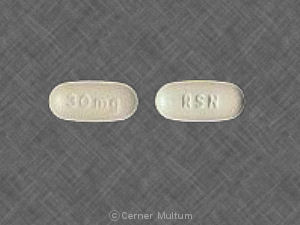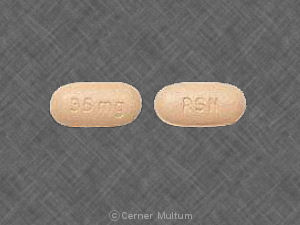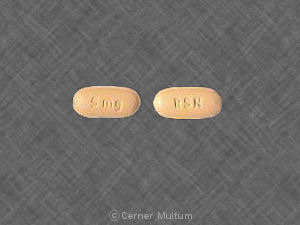What is the most important information I should know about risedronate?
You should not take risedronate if you have problems with your esophagus, or low levels of calcium in your blood.
Do not take risedronate if you cannot sit upright or stand for at least 30 minutes after taking the medicine.
Risedronate can cause serious problems in the stomach or esophagus. Stop using risedronate and call your doctor at once if you have chest pain, new or worsening heartburn, or pain when swallowing.
Also call your doctor if you have muscle spasms, numbness or tingling (in hands and feet or around the mouth), new or unusual hip pain, or severe pain in your joints, bones, or muscles.
What is risedronate?
Risedronate is a bisphosphonate (bis FOS fo nayt) medicine that alters bone formation and breakdown in the body. This can slow bone loss and may help prevent bone fractures.
Risedronate is used to treat osteoporosis caused by menopause, steroid use, or gonadal failure. This medicine is for use when you have a high risk of bone fracture due to osteoporosis.
Risedronate is also used to treat Paget's disease of bone.
Risedronate may also be used for purposes not listed in this medication guide.
What should I discuss with my healthcare provider before taking risedronate?
You should not take risedronate if you are allergic to it, or if you have:
- low levels of calcium in your blood (hypocalcemia); or
- problems with the muscles in your esophagus (the tube that connects your mouth and stomach).
Do not take risedronate if you cannot sit upright or stand for at least 30 minutes. Risedronate can cause serious problems in the stomach or esophagus. You must stay upright for at least 30 minutes after taking this medicine.
To make sure risedronate is safe for you, tell your doctor if you have ever had:
- trouble swallowing;
- problems with your stomach or digestion;
- hypocalcemia;
- a dental problem (you may need a dental exam before you begin taking risedronate);
- kidney disease; or
- any condition that makes it hard for your body to absorb nutrients from food (malabsorption).
In rare cases, this medicine may cause bone loss (osteonecrosis) in the jaw. Symptoms include jaw pain or numbness, red or swollen gums, loose teeth, or slow healing after dental work. The longer you use risedronate, the more likely you are to develop this condition.
Osteonecrosis of the jaw may be more likely if you have cancer or received chemotherapy, radiation, or steroids. Other risk factors include blood clotting disorders, anemia (low red blood cells), and a pre existing dental problem.
Talk with your doctor about the risks and benefits of using this medication.
It is not known whether this medicine will harm an unborn baby. Tell your doctor if you are pregnant or plan to become pregnant.
It is not known whether risedronate passes into breast milk or if it could harm a nursing baby. Tell your doctor if you are breast-feeding a baby.
How should I take risedronate?
Risedronate tablets come in different strengths (number of milligrams per pill) that are taken on different schedules. You may need to take a tablet once per day, once per week, once per month, or for 2 days in a row once per month.
Your dosing schedule will depend on why you are taking risedronate and in what tablet strength. If you change strengths, you may also need to change your schedule.
Follow all directions on your prescription label. Do not take this medicine in larger or smaller amounts or for longer than recommended.
Take the Actonel tablet first thing in the morning with a full glass (6 to 8 ounces) of water, at least 30 minutes before you eat or drink anything or take any other medicine.
Take the Atelvia tablet just after breakfast, with at least 4 ounces of water.
Use only plain water when taking a risedronate tablet. Do not use coffee, tea, soda, juice, or mineral water.
Do not crush, chew, or suck on a risedronate tablet. Swallow it whole.
For at least 30 minutes after taking risedronate:
-
Do not lie down or recline.
-
Do not take any other medicine including vitamins, calcium, iron, antacids, or laxatives.
Take this medicine at the same time each day or on the same day each week or each month (depending on your dosing schedule).
Pay special attention to your dental hygiene while taking risedronate. Brush and floss your teeth regularly. If you need to have any dental work (especially surgery), tell the dentist ahead of time that you are using risedronate.
Risedronate is only part of a complete program of treatment that may also include diet changes, exercise, bone mineral density testing, and taking calcium and vitamin supplements. Follow your doctor's instructions very closely.
Store at room temperature away from moisture and heat. Keep unused effervescent tablets in the foil blister pack.
Your doctor will determine how long to treat you with this medicine. Risedronate is often given for only 3 to 5 years.
What happens if I miss a dose?
Once-daily dosing: If you forget to take risedronate first thing in the morning, do not take it later in the day. Wait until the following morning and skip the missed dose. Do not take two (2) doses in one day.
Once-per-week or once-per-month dosing: If you forget to take risedronate on your scheduled day, take it first thing in the morning on the day after you remember the missed dose. Then return to your regular weekly or monthly schedule on your chosen dose day. Do not take 2 doses in one day.
What happens if I overdose?
Drink a full glass of milk and seek emergency medical attention or call the Poison Help line at 1-800-222-1222. Do not make yourself vomit and do not lie down.
What should I avoid while taking risedronate?
Do not take two different brands or strengths of risedronate at the same time.
Avoid taking any other medicines for at least 30 minutes after taking risedronate. This includes vitamins, calcium, iron, antacids, or laxatives. Some medicines can make it harder for your body to absorb risedronate.
Avoid smoking, or try to quit. Smoking can reduce your bone mineral density, making fractures more likely.
Avoid drinking large amounts of alcohol. Heavy drinking can also cause bone loss.
What are the possible side effects of risedronate?
Get emergency medical help if you have signs of an allergic reaction (hives, difficult breathing, swelling in your face or throat) or a severe skin reaction (fever, sore throat, burning in your eyes, skin pain, red or purple skin rash that spreads and causes blistering and peeling).
Stop using risedronate and call your doctor at once if you have:
- chest pain, new or worsening heartburn;
- difficulty or pain when swallowing;
- pain or burning under the ribs or in the back;
- severe heartburn, burning pain in your upper stomach, or coughing up blood;
- new or unusual pain in your thigh or hip;
- jaw pain, numbness, or swelling;
- severe joint, bone, or muscle pain; or
-
low calcium levels --muscle spasms or contractions, numbness or tingly feeling (around your mouth, or in your fingers and toes).
Common side effects may include:
- heartburn, indigestion;
- stomach pain, diarrhea;
- back pain, joint pain, muscle pain; or
- flu-like symptoms.
This is not a complete list of side effects and others may occur. Call your doctor for medical advice about side effects. You may report side effects to FDA at 1-800-FDA-1088.
What other drugs will affect risedronate?
Tell your doctor about all your current medicines and any you start or stop using, especially:
- aspirin;
- iron supplements;
- antacids, laxatives; or
-
NSAIDs (nonsteroidal anti-inflammatory drugs) --ibuprofen (Advil, Motrin), naproxen (Aleve), celecoxib, diclofenac, indomethacin, meloxicam, and others.
This list is not complete. Other drugs may interact with risedronate, including prescription and over-the-counter medicines, vitamins, and herbal products. Not all possible interactions are listed in this medication guide. Talk with your doctor about the best dosing schedule for your other medicines.
Where can I get more information?
Your pharmacist can provide more information about risedronate.
Remember, keep this and all other medicines out of the reach of children, never share your medicines with others, and use this medication only for the indication prescribed.
Every effort has been made to ensure that the information provided by Cerner Multum, Inc. ('Multum') is accurate, up-to-date, and complete, but no guarantee is made to that effect. Drug information contained herein may be time sensitive. Multum information has been compiled for use by healthcare practitioners and consumers in the United States and therefore Multum does not warrant that uses outside of the United States are appropriate, unless specifically indicated otherwise. Multum's drug information does not endorse drugs, diagnose patients or recommend therapy. Multum's drug information is an informational resource designed to assist licensed healthcare practitioners in caring for their patients and/or to serve consumers viewing this service as a supplement to, and not a substitute for, the expertise, skill, knowledge and judgment of healthcare practitioners. The absence of a warning for a given drug or drug combination in no way should be construed to indicate that the drug or drug combination is safe, effective or appropriate for any given patient. Multum does not assume any responsibility for any aspect of healthcare administered with the aid of information Multum provides. The information contained herein is not intended to cover all possible uses, directions, precautions, warnings, drug interactions, allergic reactions, or adverse effects. If you have questions about the drugs you are taking, check with your doctor, nurse or pharmacist.
Copyright 1996-2018 Cerner Multum, Inc. Version: 12.03. Revision date: 12/4/2017.


